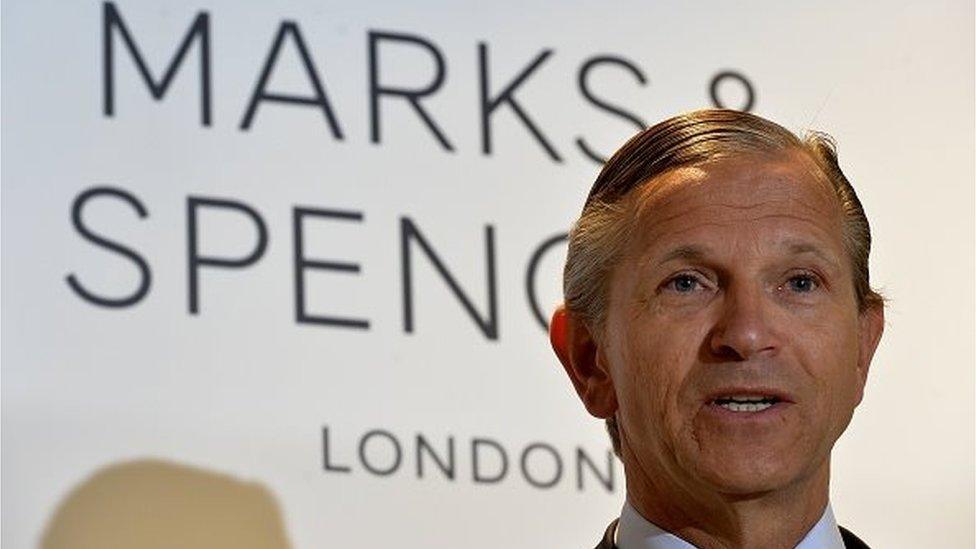Who is 'Mrs M&S'?
- Published

Marks and Spencer boss Steve Rowe says he is determined to revive the High Street giant by getting back in touch with the core female customers he has labelled "Mrs M&S". But who exactly is he talking about?
According to Mr Rowe this apparently married woman wants "stylish contemporary clothing". He adds: "We need to cherish and celebrate her and make sure we're giving her exactly what she needs at the right time."
The company confirms that it sees the "loyal" - or perhaps of late, not so loyal - Mrs M&S as a woman in her 50s who shops with them around 18 times a year.
But is this marketing mantra really going to attract a set of stylish and contemporary women? Social media reaction seems to suggest not.

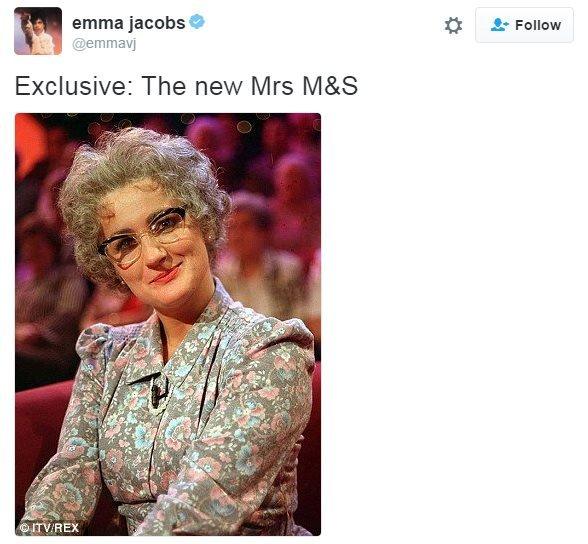
Emma Jacobs, features journalist for the Financial Times, tweeted a photograph of Mrs Merton

So it has not been a hit with the Twittersphere. But what about other customers? In a bid to assess whether this is a move in the right direction I spoke to one stylish 60-something woman that I know was once an avid Marks and Spencer customer - my mum Liz.
"It sounds very patronising," she says. "And also very old fashioned. Nobody wants to be thought of as 'Mrs' anything really - let alone Mrs M&S.
"I want to dress in a modern style that complements me so hearing they want to be 'stylish and contemporary' sounds good. But really I'd like them to bring back good quality clothing in the right sizes," she adds.
Catherine Harper, professor of textiles at the University of Portsmouth, agrees.
"I'm 51 and have been trying to be a loyal M&S shopper for a long time but if they are going down the route of 'Mrs M&S' then I think it's very much the wrong track," she says.
"A lot of women like myself are already feeling disenfranchised and this doesn't help. It's not how we want to be seen. We are crying out for contemporary clothes that are sexy with a good fit and a good finish and that are reasonably priced."
She adds: "As shoppers we are really attached to the brand and I hope they will listen to us."
Core shoppers
Kirsty McGregor, from fashion industry publication Drapers, says that unfortunately for Marks and Spencer it has got itself into a position "where they are damned if they do and damned if they don't".
"Perhaps Steve Rowe could have chosen a more modern way of referring to this set of customers, but the 50-plus woman is the core target market for M&S and his decision to focus on them makes sense.
"He has also acknowledged that 42% of M&S customers are men and 22% are under 35, and is looking at how to better serve these groups. But increasing its appeal to that core base of older women is one area where M&S can really make a difference to sales."
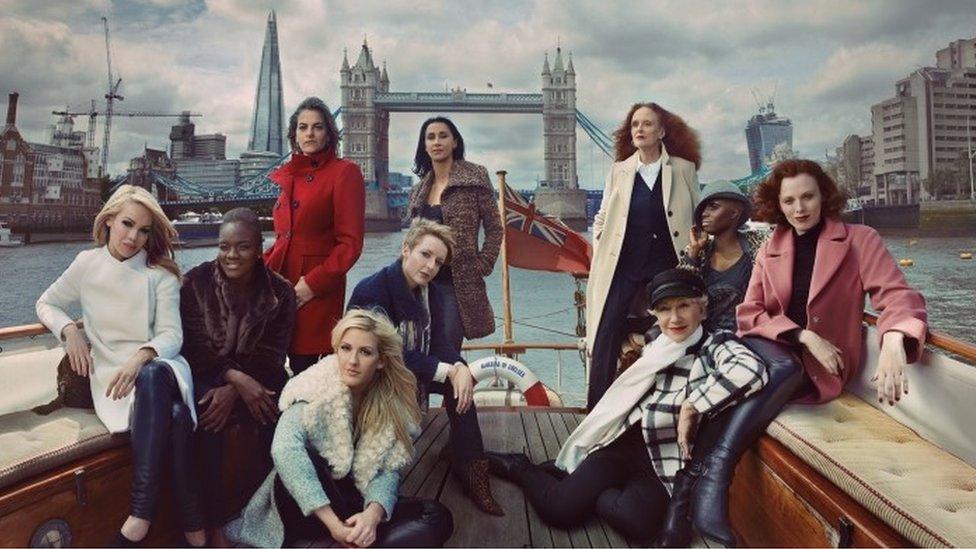
Marks and Spencer has previously used a host of celebrity women to promote its brand including Dame Helen Mirren and artist Tracey Emin
Mr Rowe has talked about this being exactly the brand's new focus - cutting back on fashion-focused clothing in favour of plans to "re-establish our style authority", with an emphasis on quality wardrobe essentials.
He has also pledged to reduce promotions and clearance sales and invest in lower everyday prices - a trend that is taking hold more widely across the retail industry in response to consumer demand.
But the move to woo back the 50-something clientele is something of an about-turn for Marks and Spencer, coming hot on the heels of a new fashion collection from 32-year-old model and presenter Alexa Chung. She recently delved into the M&S archives to produce a mix of heritage style designs with shorter hemlines.
Stephen Cheliotis, chief executive of the Centre for Brand Analysis, says the historic chain still resonated among young people.
Last year, M&S came 18th in the annual Superbrands survey, external - which ranks British brands based on the views of marketing experts, business professionals and consumers - beating companies such as Microsoft and Amazon. More than half of 26 to 35-year-olds who took part in the survey identified M&S as a "superbrand".
Mr Cheliotis says High Street brands that lose sight of their target shoppers can "float around and eventually die".
However, he also warns there was a risk of alienating potential customers by focusing on a certain type of person.
"I think narrowing it down by age is not the way to go for somewhere like Marks and Spencer. They should instead be saying what we stand for, what we offer and how we help you."
- Published25 May 2016

- Published7 January 2016
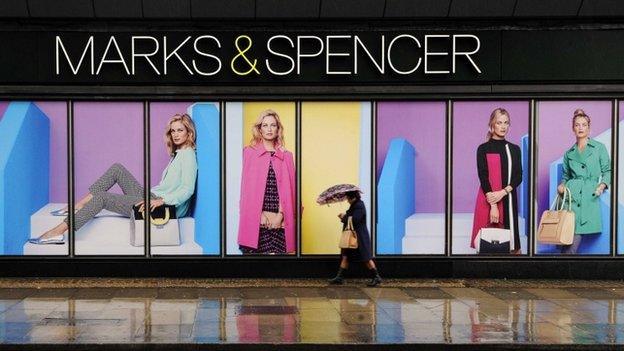
- Published7 January 2016
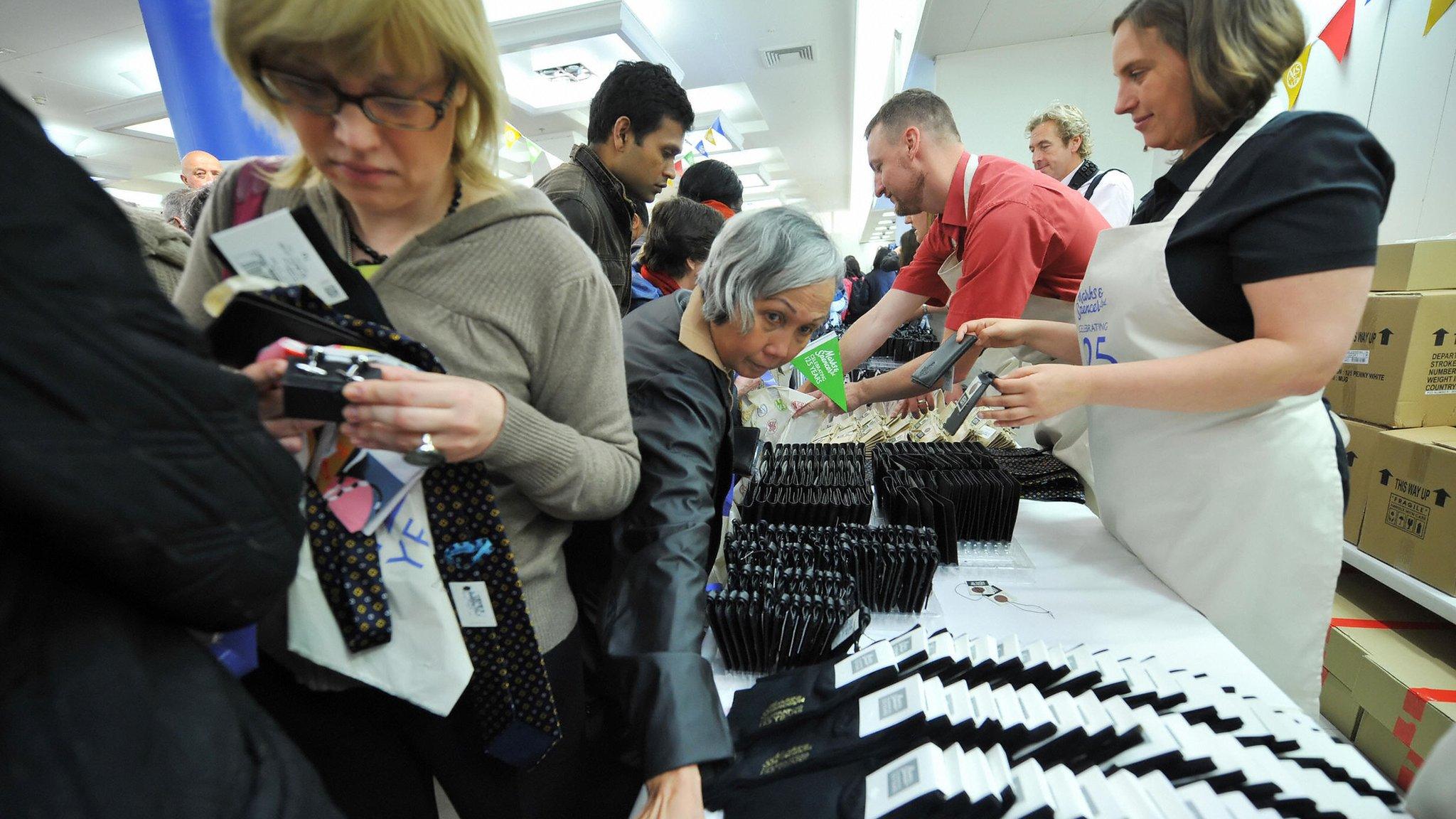
- Published24 May 2016
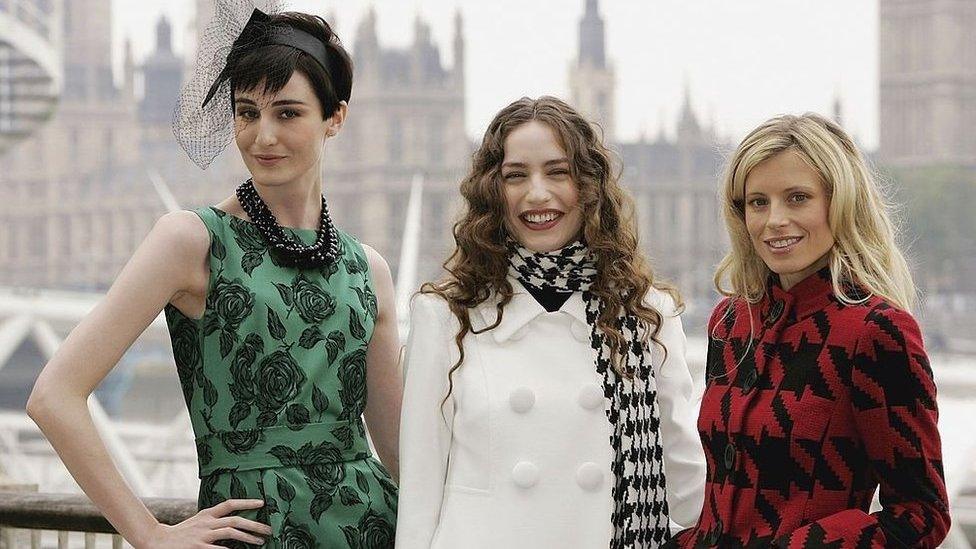
- Published7 January 2016
